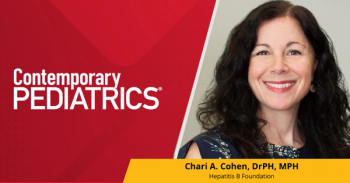
- Consultant for Pediatricians Vol 6 No 9
- Volume 6
- Issue 9
Focus on Vaccination
As a clinical immunologist with a special interest in vaccines, it is a pleasure to present this special issue of Consultant For Pediatricians. Vaccines are among the major achievements of modern medicine. Once common serious childhood illnesses, including tetanus, diphtheria, polio, mumps, and measles, are now rarely seen in this country. It is ironic, therefore, that with the precipitous decline in the incidence of many infectious diseases brought about by widespread vaccination--and the very recent availability of several new vaccines--many parents have been lulled into a false sense of security about the risk posed by the diseases these vaccines have been designed to prevent.
As a clinical immunologist with a special interest in vaccines, it is a pleasure to present this special issue of Consultant For Pediatricians. Vaccines are among the major achievements of modern medicine. Once common serious childhood illnesses, including tetanus, diphtheria, polio, mumps, and measles, are now rarely seen in this country. It is ironic, therefore, that with the precipitous decline in the incidence of many infectious diseases brought about by widespread vaccination--and the very recent availability of several new vaccines--many parents have been lulled into a false sense of security about the risk posed by the diseases these vaccines have been designed to prevent.
Fears about vaccine safety are common, even among parents who consent to have their children vaccinated. Those who hesitate to vaccinate or who refuse altogether often cite fears of potential adverse health effects. Parental worries have been fanned by negative media coverage that links immunizations to (among other disorders) autism, allergies, asthma, diabetes, inflammatory bowel syndrome, a "weakened" immune system, multiple sclerosis, and Guillain-Barré syndrome.
Also, widespread vaccination and the attendant decline in the incidence of vaccine-preventable diseases have made many parents "immune" to the severity of vaccine-preventable diseases. The success of initiatives for widespread vaccination has led to an underappreciation among many parents (and perhaps even among young clinicians) of the devastation that these diseases can wreak. (See "A dose of reality," pages S9 and S18.) The public's lack of experience with such diseases has led many to worry instead about the potential adverse effects of vaccines rather than about the sequelae of the diseases themselves.
In the following pages, Linda S. Nield, MD, associate professor of pediatrics at West Virginia University School of Medicine in Morgantown, outlines current recommendations for keeping pediatric patients fully vaccinated. Dr Nield divides these guidelines into 3 parts. On page S5, the focus is on vaccines for the elementary school-aged child; on pages S15 and S19, you will find vaccine recommendations for middle-schoolers and for those of college age, respectively.
You will also find a Table (page S22) that summarizes key details about vaccines recently or newly recommended--Adacel and Boostrix, HAVRIX and VAQTA, Menactra, RotaTeq, GARDASIL, and ProQuad.
As pediatricians, our goal is to protect our patients from preventable illnesses. We hope that the information provided in this special issue will move us closer to that goal. *
Articles in this issue
over 18 years ago
Tuberous Sclerosis Complex and Type 1 Neurofibromatosisover 18 years ago
Atypical Tuberculin Skin Test Responsesover 18 years ago
On the Tip of Her Tongueover 18 years ago
Eczema Herpeticum: A Manifestation of Hyperimmunoglobulin E Syndromeover 18 years ago
Middle School and College Vaccinationover 18 years ago
Injury From a Fall?over 18 years ago
Middle School: A Time for Maturation-and Vaccinationover 18 years ago
Elementary School Vaccinationover 18 years ago
Adolescent Scoliosis: REFERENCES:over 18 years ago
Immunizing the College Student: REFERENCES:Newsletter
Access practical, evidence-based guidance to support better care for our youngest patients. Join our email list for the latest clinical updates.









